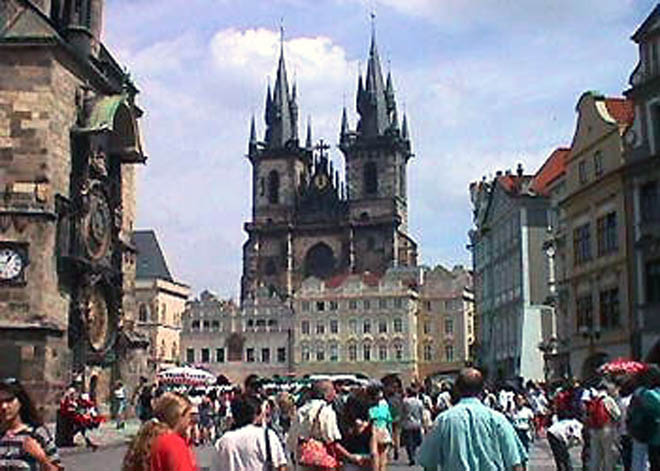More than 40 countries struck an agreement on Wednesday in Prague on returning Jewish real estate stolen by the Nazis before and during the World War II, DPA reported.
A total of 43 countries signed the non-binding guidelines at a conference in the Czech capital.
The diplomats and experts involved said it amounted to the first set of international recommendations regarding restitution of private and communal real estate seized between 1933 and 1945.
"For the first time in 65 years since the end of World War II there are a set of principles to deal with the confiscation of property taken from victims of Naziism and the Shoah," Stuart Eizenstat, a special adviser for Holocaust issues to the US president and secretary of state, told a press conference.
The rules urge countries to compensate victims or heirs for buildings that cannot be returned or compensate for properties without heirs by setting up funds.
Eizenstat has urged countries to act quickly as many Holocaust survivors live in poverty. "Of the 500,000 Holocaust survivors worldwide at least half live at or below the level of poverty," he said.
The principles build on an earlier non-binding international statement - the so-called Terezin Declaration - from a high-level conference on seized Holocaust assets held in Prague a year ago.
However, three of the Terezin Declaration's 47 signatories - Belarus, Malta and Serbia - did not participate in the follow-up talks on the best practices, while another signatory, Russia, refused to sign them.
"It did not take into an account a key issue for Russia - that the document includes a reference to agreements, decrees and documents that determined the post-war order in Europe," Vladimir Fedorov, the spokesman for the Russian Embassy in Prague, told the German Press Agency dpa.
Such a reference would confirm that Russia legitimately holds its wartime assets and thus does not have to return it or compensate for it - a position opposed by the Jewish community.
Nazi Germany killed 6 million Jews, three quarters of European Jewry, in an act of systematic genocide known as the Holocaust. The Nazis confiscated or purchased at artificially-low prices Jewish assets worth billions of dollars in order to help fuel its war machine.
Sixty-five years after the war, a number of countries have yet to return or compensate for at least some real-estate that once belonged to Holocaust victims and survivors.
"It poses a challenge for countries like the Czech Republic, Poland and Romania," said Tomas Jelinek, a former head of the Jewish community in Prague, who was skeptical about the guidelines' impact on actual moves by individual states.
"It would be great if it moved forward but the initiative has a weak political backing," he said.
43 countries agree guidelines on return of Holocaust real estate
More than 40 countries struck an agreement on Wednesday in Prague on returning Jewish real estate stolen by the Nazis before and during the World War II.






